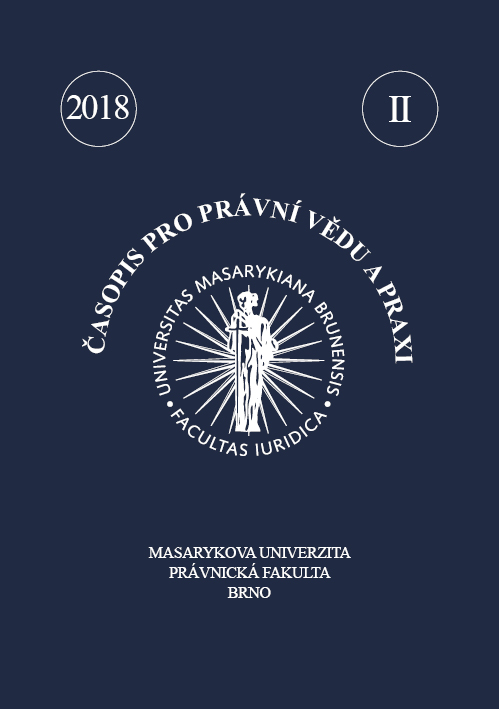Dovolenkové právo v judikatúre Súdneho dvora EÚ pracovnoprávna úprava Zákonníka práce
Annual Leave in the Case Law of the Court of Justice of the European Union and Legislation of the Labour Code
Author(s): Helena BarancováSubject(s): Law on Economics, EU-Legislation
Published by: Masarykova univerzita nakladatelství
Keywords: Annual Leave; Minimum 4-week Leave; Workers; Labour Code of the Slovak Rebublic; Labour Code of the Czech Republik; Case Law of the Court of Justice EU; Conditions of Leave; Accumulation of Anual.
Summary/Abstract: After adoption nearly 30 decision of the Court of Justice of the EU in particular over the last decade in the sphere of the right to annual leave, it is more than necessary for the Slovak and Czech legislation to deal with the legislative changes of the holiday as laid down in the legal status de lege lata by the Labour Code of the Slovak Republic and by the Labour Code of the Czech Republic. As is clear from the author’s analysis, in the near future, it is necessary to re-formulate legislative assumptions of annual leave. Based on the conclusions of several decisions of the Court of Justice of the EU concerning the “annual leave law”, which requires the Member States to provide to workers a minimum 4-week leave and which at the same time do not make it possible to link the entitlement to a leave to a certain number of days (see in particular the decision of Court of Justice in the case BECTU, Schulz-Hoff, as well as in case Domingues), it will be necessary to re-formulate the conditions for the entitlement to leave for a calendar year. Leave for days worked should be abolished from the existing employment legislation of the Labour Code, because not only by its name but also by the content is contrary to the prohibition to bind entitlement to leave for the relevant number of days worked. Workers are entitled to a minimum 4-week holiday from the first day of work, although in part-time work is based on the principle of pro rata temporis (in particular the ruling of the Court of Justice in Heiman, paragraph 24 and the Zentralbetriebssrat der Landeskrankenhäuser Tirols). In accordance with Directive 2003/88/EC and the case-law of the Court of Justice of the European Union, a worker is also entitled to an annual leave during his/her temporary incapacity for work (for that reason, it should not be cut), even if the worker can decide not to enforce leave during his/her temporary incapacity for work. Similarly, in line with the Court’s previous case-law, it will be necessary to adjust the whole issue of the reduction of leave not only as regards the reasons for the reduction of leave but also to the extent of the reduction in leave which should not be below the minimum annual leave resulting from Article 7 (1) of Directive 2003/88/EC, which has direct legal effect. Particular attention will be paid to the problem of accumulation of acquired rights of workers, limiting the accumulation in case of long-term temporary incapacity of the worker and the possibility of such accumulation for other reasons, especially in cases where the employer himself does not allow workers to take leave for various reasons other than illness on the part of workers (for example, if a physical person employs a dependent job as a “self-employed”) as was the dispute in the most recent case of the EU’s Court of Justice ruling in the King’s case in late November 2017.
Journal: Časopis pro právní vědu a praxi
- Issue Year: 26/2018
- Issue No: 2
- Page Range: 199-220
- Page Count: 22
- Language: Slovak

